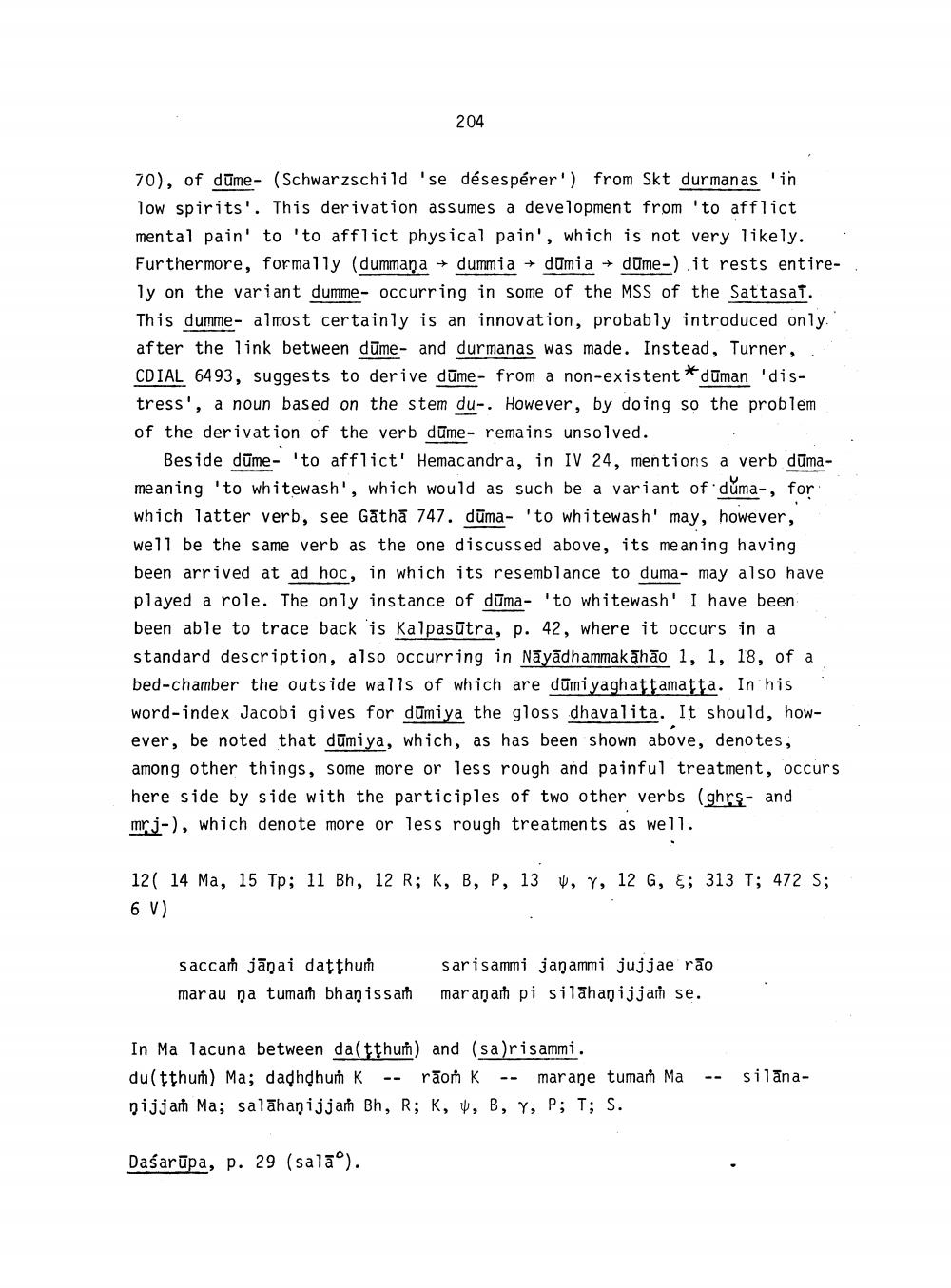________________
204
70), of dūme- (Schwarzschild 'se désespérer') from Skt durmanas 'in low spirits'. This derivation assumes a development from 'to afflict mental pain' to 'to afflict physical pain', which is not very likely. Furthermore, formally (dummaņa + dummia + dūmia → dūme-) .it rests entirely on the variant dumme - occurring in some of the MSS of the Sattasaf. This dumme - almost certainly is an innovation, probably introduced only. after the link between dūme- and durmanas was made. Instead, Turner, CDIAL 6493, suggests to derive dūme- from a non-existent * dūman 'distress', a noun based on the stem du-. However, by doing so the problem of the derivation of the verb dūme- remains unsolved.
Beside dūme- 'to afflict' Hemacandra, in IV 24, mentions a verb dūmameaning 'to whitewash', which would as such be a variant of duma-, for which latter verb, see Gathā 747. dūma- 'to whitewash' may, however, well be the same verb as the one discussed above, its meaning having been arrived at ad hoc, in which its resemblance to duma- may also have played a role. The only instance of dūma- 'to whitewash' I have been been able to trace back 'is Kalpasūtra, p. 42, where it occurs in a standard description, also occurring in Nāyādhammakahāo 1, 1, 18, of a bed-chamber the outside walls of which are dūmiyaghattamatta. In his word-index Jacobi gives for dūmiya the gloss dhavalita. It should, however, be noted that dūmiya, which, as has been shown above, denotes, among other things, some more or less rough and painful treatment, occurs here side by side with the participles of two other verbs (ghrs - and mrj-), which denote more or less rough treatments as well.
12( 14 Ma, 15 Tp; 11 Bh, 12 R; K, B, P, 13 V, Y, 12 G, 5; 313 T; 472 S; 6 V)
saccam jāņai daţthum marau na tuman bhanissam
sarisammi janammi jujjae rão maranań pi silāhanijjam se.
In Ma lacuna between da(tthun) and (sa)risammi. du(thun) Ma; dadhdhun K -- rāom k -- marane tuma Ma -- silānagijjan Ma; salāhanijjaħ Bh, R; K, M, B, Y, P; T; S.
Daśarūpa, p. 29 (salao).




